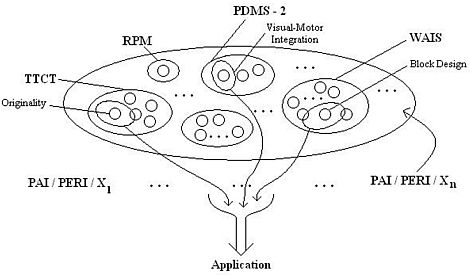
NEWS: Chatbots.org survey on 3000 US and UK consumers shows it is time for chatbot integration in customer service!read more..
Learning News
Emotive computers experience virtual remorse
 | by Karolina Kuligowska on Apr 21, 2011 in Agent's Processing, Emotion, Learning, Research News |
Summary: Basing on "regret" algorythm, computers are able to optimize experienced emotions.
 Researchers from Blavatnik School of Computer Science at Tel Aviv University led by Professor Yishay Mansour are developing artificial intelligence algorithm in order to equip machines with human emotions. According to this algorithm based on machine learning, the computer programs are taught a sense of “regret” and how to “feel sorry” for their mistakes.
Researchers from Blavatnik School of Computer Science at Tel Aviv University led by Professor Yishay Mansour are developing artificial intelligence algorithm in order to equip machines with human emotions. According to this algorithm based on machine learning, the computer programs are taught a sense of “regret” and how to “feel sorry” for their mistakes.
Read more about: Emotive computers experience virtual remorse
Chatbots take the Visual Intelligence Turing test
 | by Karolina Kuligowska on Oct 31, 2011 in Agent's Processing, Learning, Research News |
Summary: Chat bots visual recognition skills are tested by visual Turing test
Look carefully at the scene presented on the picture below:

If somebody asked you a question: “Where is the coffee cup?”, you could give a simple answer: “on the mat’. But you could also say “to the left of the lamp” as well as “on the table”. All those answers are correct, although they require several subjective and nuanced judgements which we - humans - do intuitively. What about chatbots?
Read more about: Chatbots take the Visual Intelligence Turing test
Dangerously self-aware chatbots should be kept in virtual prison!
 | by Karolina Kuligowska on Apr 23, 2012 in Agent's perception of humans, Facial coding, Agent's Processing, Action tendency, Learning, Cognition, Research News |
Summary: Virtual Prison for Hazardous Intelligent AI entities
Dr. Roman V. Yampolskiy from University of Louisville says that we should be aware of dangerously self-aware chatbots and he suggests to keep dangerous AI entities in virtual prison for avoiding social-engineering attacks. According to him, we should improve cybersecurity, because one day disobeying virtual agents could threaten humanity’s existence.
Read more about: Dangerously self-aware chatbots should be kept in virtual prison!
Measure your chat bot IQ!
 | by Karolina Kuligowska on May 18, 2012 in Agent's Processing, Creativity, Learning, Cognition, Research News |
Summary: Psychometric AI approach to measure computational intelligence

Psychologists nowadays are able to measure human intelligence by using various IQ tests. Nevertheless, they still don’t agree on one common definition of human intelligence. What would happen if we apply a similar approach to measuring intelligence of artificial entities, skipping never-ending discussions on AI definition? According to professor Selmer Bringsjord and Bettina Schimanski an answer is contained in Psychometric AI (PAI).
Will chatbots think, learn and act by themselves soon?
 | by Karolina Kuligowska on Apr 2, 2012 in Agent's Processing, Learning, Cognition, Research News |
Summary: Chatbots can become autonomous virtual creatures by integrating advanced neural network methods
The robot presented on the video can chat with other humanoid robots via the Internet. Moreover, when faced with a new situation, the robot can search the World Wide Web and gather appropriate information in order to fill an identified knowledge gap. Afterwards, it incorporates new knowledge under its own power, and is ready to execute diverse new tasks.
Present chatbots have rather limited reasoning, inflexible behavior and they lack learning abilities. They perform entrusted tasks in strict accordance with programmed procedures. What if chatbot developers equipped new chatbots with an advanced online-learning mechanism applied recently in intelligent humanoid robots?
Read more about: Will chatbots think, learn and act by themselves soon?
